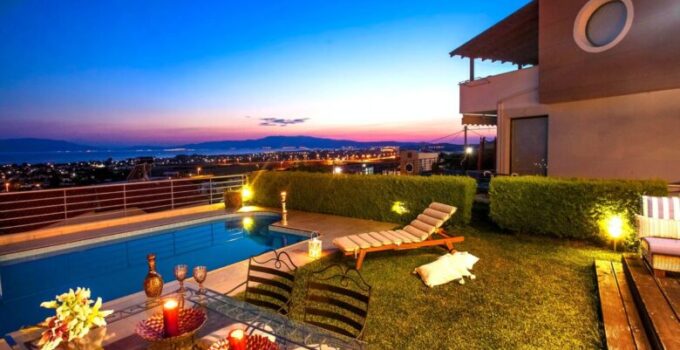The summer heat has become simply unbearable and you think maybe a pool might be a solution that will give you that so much-desired refreshment. But at the same time, countless questions are arising because you have no idea about pool maintenance. How to take care of the pool? What do you need to maintain it? Don’t worry. We are going to give you some smart pool maintenance tips. Follow these instructions carefully and then enjoy the pool carelessly.
Pool Types
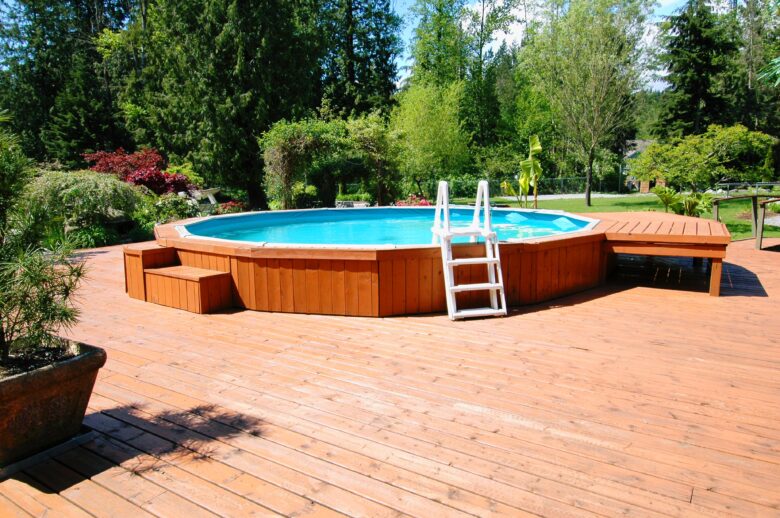
Source: thespruce.com
Pools are basically different as fixed and demountable. Disassembly is popular right now because it is easy to assemble and adapt to the current needs of the owner. Their dimensions reach up to thirty square meters, and they differ in several types, from ordinary inflatable ones to more serious pools with a depth of 1.30 meters with metal construction. As a rule, dismantling pools are above ground and are not buried.
Preparing the pool for the bathing season is the same for all pool types. It is necessary to check the equipment, repair any malfunctions, and thoroughly clean the equipment – and the pool itself. It is especially important to check at pool joints where water mustn’t leak, and all equipment should work flawlessly before commissioning. It very often happens that the equipment worked in the fall. However, sometimes it fails in the spring when it is turned on again. It is usually happening due to corrosion or poor storage.
Pool Maintenance
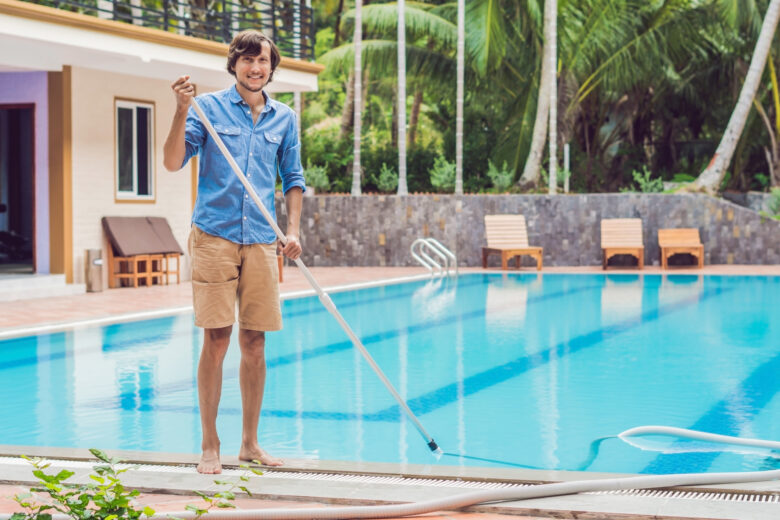
Source: rubbbqcompany.com
Maintenance of pool equipment and water in the pool is very easy if it is done regularly and in an adequate way. We give you a brief instruction on pool maintenance to be a source of true pleasure, not an obligation. Most, if not all, problems with swimming pools are the result of inadequate pool water maintenance.
To obtain and maintain crystal clear and bacteriologically correct water in the pool, it is necessary to regularly control the quality of water and proper physical and chemical treatment of water. Regular testing of pool water will ensure minimal maintenance throughout the year. You will also save money on chemicals by preventing situations that require expensive interventions, such as chlorine shock treatment and the use of algae killers.
“If you’re worried about the water level in your pool you should install an automatic pool filler. So take a look at this bestazy review and find one that will suites your needs.
Renovating Your Pool Can Be A Very Exciting Experience
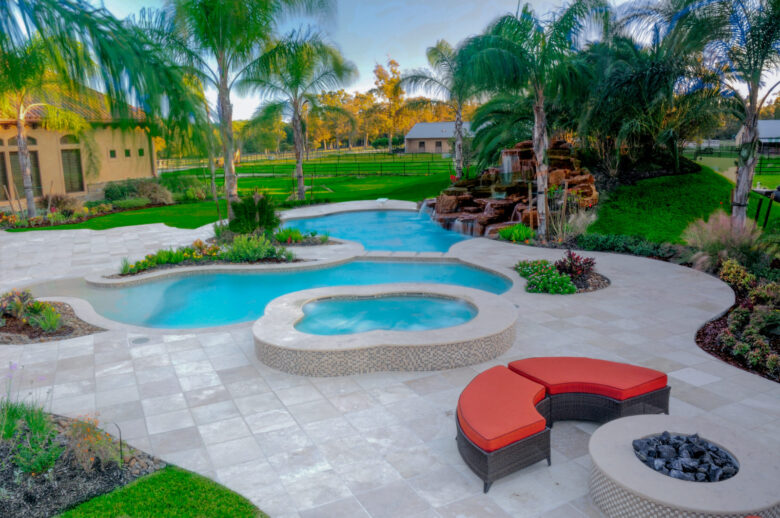
Source: platinumpools.com
Whether it is a simple desire to change the existing look or it is a necessary need for repairs due to dilapidation – you will certainly enjoy the view of a different object at the end of the task. As with the beginning of construction, all existing factors should be considered when renovating – because once you start such a job, you should use the opportunity and change what is not to be changed at that moment, but next year it would probably be your turn. These are 4 smart pool maintenance tips that you need:
1. Reconstruction Of The Final Coating
Over time, pool resurfacing has worn out, discolored, darkened, or torn at the pool with foil. A look at such a coating leads to the conclusion that it happened from an inadequate balance of water and minerals in the water. Sometimes this problem can be solved with a simple acid wash that will remove the top layer and leave a clean surface, which is why removing the lining or renovation will not be necessary. This means that when deciding on changing the lining, you should take a good look and assess the actual situation.
If all our attempts to clean the existing lining do not yield results, we decide to change it. According to poolresurfacingchandler.com, the financial expense includes removing the old cladding – which is a significant amount when the old cladding is made of mosaic. This includes a later check of the condition of the existing waterproofing, which could have been damaged during the removal of the tiles. Also, there are still older versions of the pool that do not even have waterproofing, which means that the renovation will have to include such a step.
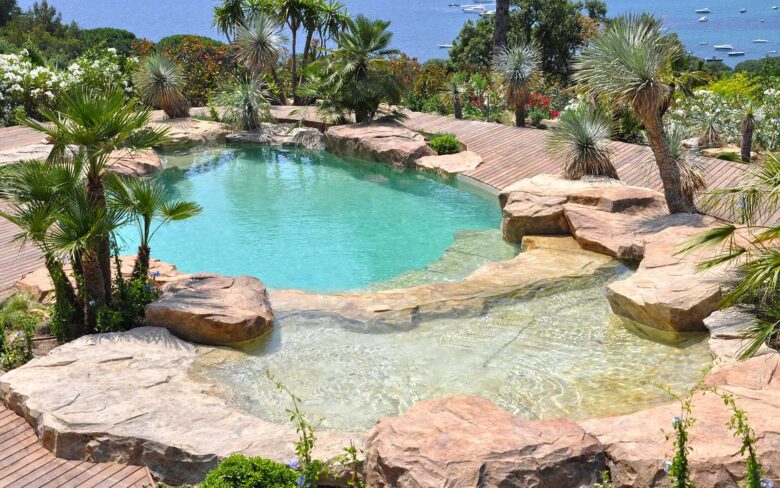
Source: sculpteursdenature.com
2. Physical Treatment
Physical treatment of water involves removing dirt particles using filters, with sand filters being the most commonly used. Cleaning accessories are necessary for cleaning the bottom and walls of the pool, because only dirt that floats on the water reaches the filter, while dirt remains on the bottom of the pool that can only be removed with a vacuum cleaner. The entire volume of water must be filtered daily.
Proper sizing of the equipment ensures that filtering is done in 4-5 hours. It is recommended to install automation to facilitate maintenance. Pool maintenance works can be divided into two groups: regular: summer, during the bathing season, and seasonal: spring work and preparation for the season and autumn pool conservation. Manual and automatic vacuum cleaners are available. The morning is the most suitable for vacuuming the pool. During the night, all suspended particles will settle to the bottom of the pool.
3. Algae And Other Impurities
Algae are mostly formed at the bottom of the pool or on the edges. For the pool to be hygienically safe and clean at all times, algaecides, that is, algae control agents should be used. These agents are used in the amount of 100 ml per 10 cubic meters of water.
Flocculants group microparticles and large impurities in one place and make the water clear. This procedure makes it easier to maintain the bottom of the pool – which is cleaned with a vacuum cleaner or brushes. It is recommended that bottom cleaning be done in the morning. During the night, all the dirt will settle to the bottom – which will facilitate the washing process itself. After cleaning the pool of algae, it is necessary to rinse the filter once more, to prevent the reappearance of this type of dirt.
4. Pool Water Quality
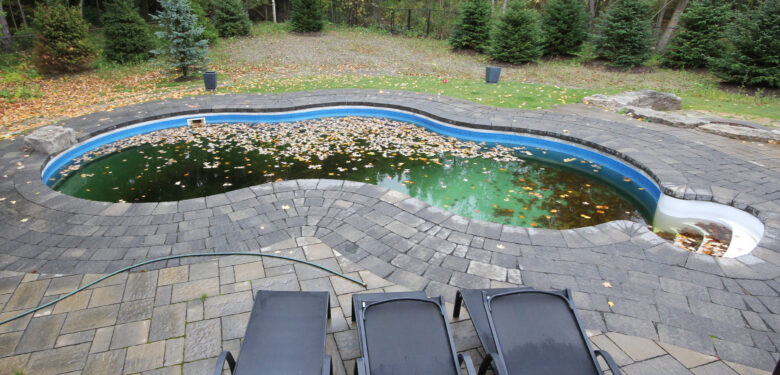
Source: poolcraft.ca
Pool water quality can be controlled via a DpD / tester. After the obtained results – you can determine which means should be used to treat water. Intensive use of swimming pools on extremely hot summer days requires greater use of chemicals. The water in the pools has a temperature of about 25 ° C. However when the water is additionally heated by the sun, the chlorine begins to evaporate. Therefore, it is necessary to constantly monitor the level of chlorine – and increase the dose. For this reason, these procedures are done in the evening – when the evaporation is much less.

